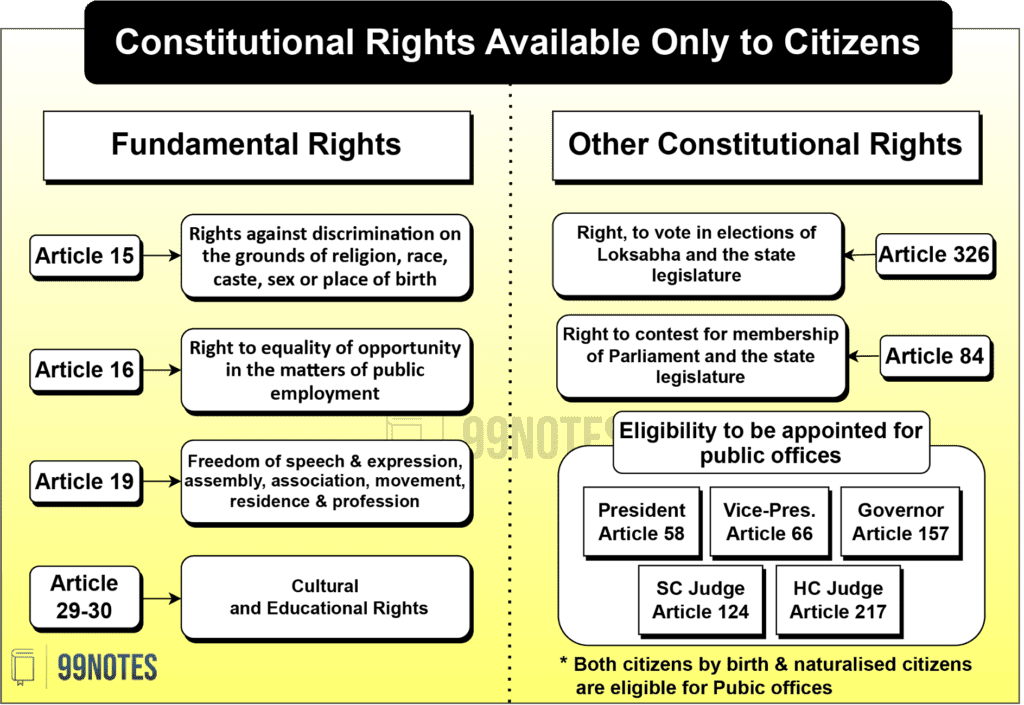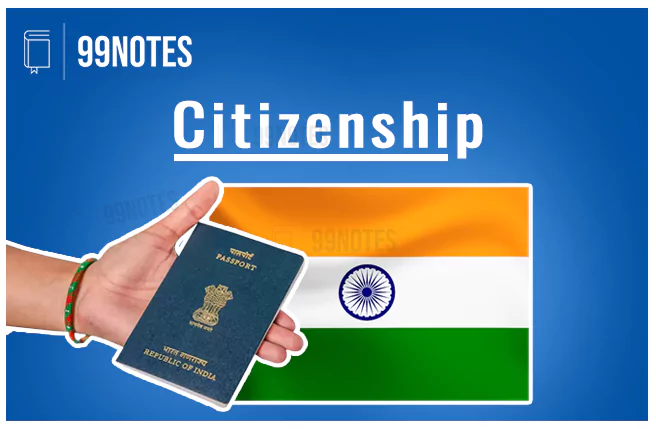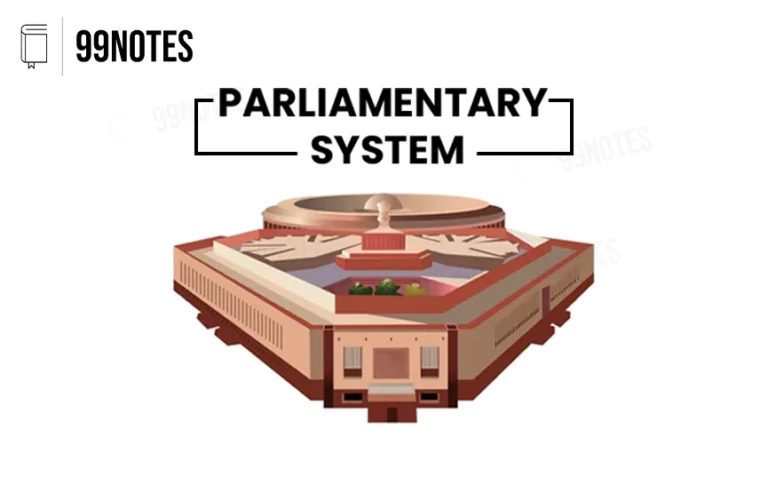Citizenship: Article 5-11 UPSC Notes
Citizenship can be defined as the legal status of membership in a political community. It is about the relationship between the state and its members and citizen-citizen relations.
Concept of Citizenship
- The concept of Citizenship arises from the relation between State and Individual. The citizen come together to form a state. They give their legitimacy and perform duties follow its laws and regulations to maintain a state.
- In return, the States grant certain rights and privileges to their citizens.

- Difference between Citizens & Non-Citizens: The concept of citizenship is important to identify the individuals who are given rights and privileges and are therefore bound by the duties towards the state. Not all rights are granted to the Non-citizens (also referred to as ‘aliens’ in Political Science)
Citizenship and Rights in Indian Constitution
With the commencement of the Constitution on 26th January 1950, the status of Indians changed from British subjects to citizens of the Republic of India, which was derived from the Constitution of India.
- Article 5 to 9 of the Indian Constitution deals with citizenship. These articles came into force on 26th November 1949, on the day of its adoption.
- The provisions given in the Constitution make a distinction between an Indian citizen and an alien (non-citizen).
- While citizens enjoy certain rights and perform duties by virtue of being a citizen, aliens also enjoy certain ‘rights of personhood’.
- Aliens have been classified into two categories; Friendly aliens (subjects of a country that has cordial relations with India) and Enemy aliens (subjects of a country that is at war with India). Enemy aliens enjoy lesser rights, e.g. they are not granted protection against arrest and detention (Article 22).
Constitutional Rights and Privileges Enjoyed Exclusively by Citizens
The constitutional rights mentioned in the Graphical representation below are available only to the citizens and not aliens. Constitutional Provisions regarding citizenship
Constitutional Provisions regarding citizenship
- The Constitution does not contain any permanent or detailed provisions regarding citizenship; it only deals with the persons who became citizens with the commencement of the Constitution.
- The Constitution empowered the Parliament to enact laws in such matters. Accordingly, Parliament has legislated the Citizenship Act 1955, which was subsequently amended in 1986, 1992, 2003, 2005 and 2020.
Relted FAQs of Citizenship
Citizenship means the legal status of being a member of a political community. In India, it defines the relationship between the state and individuals, granting certain rights and imposing specific duties on citizens.
Articles 5 to 11 in Part II of the Indian Constitution deal with Citizenship. These articles were enforced from 26th November 1949.
Citizenship in India can be acquired by: 1) Birth, 2) Descent, 3) Registration, 4) Naturalisation, 5) Incorporation of territory.
Unlike federal countries like the USA, India provides for Single Citizenship under Article 5, meaning every Indian is a citizen of India only, irrespective of the state or region they belong to.
The Citizenship Act, 1955 provides for loss of citizenship in three ways: 1) Renunciation, 2) Termination (on acquiring foreign citizenship), 3) Deprivation (if acquired fraudulently or on grounds of disloyalty).






